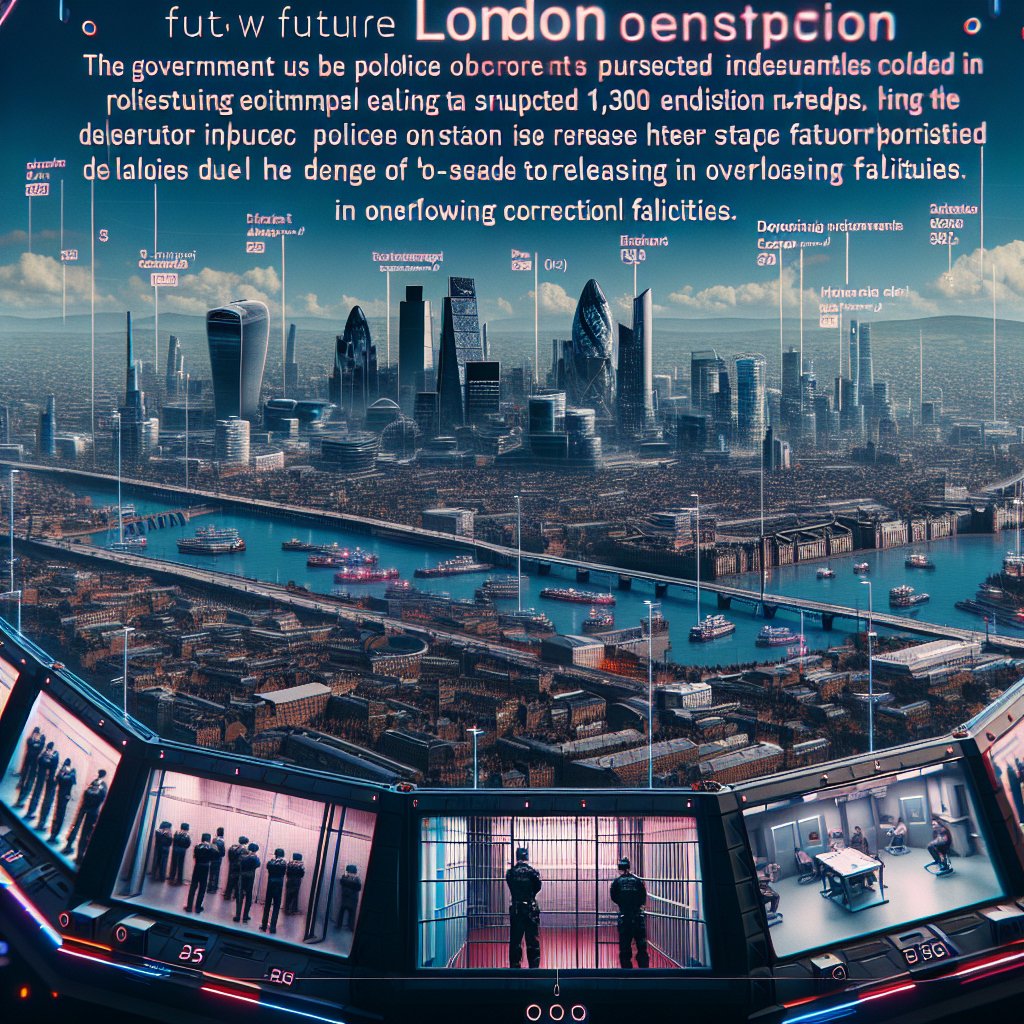Image created by AI
UK's Prison Overload: Inmates in Police Cells Amid Riot Aftermath
London has recently been confronted with civil unrest, leading to a significant surge in detainments. Prime Minister Keir Starmer's administration is now compelled to enforce emergent procedures by confining suspected criminals within police station cells until sufficient room can be allocated in the nation's burgeoned correctional facilities. This decision follows the detention of over 1,100 individuals pertaining to the disorder, predominately targeting migrants and Muslims, exacerbating the already critical situation regarding prison capacity.
The riots, incited by disinformation over a triple murder allegedly committed by an Islamist migrant, provoked unrest particularly in Northern England, spotlighting the underlying tensions and the government's challenged relationships with certain demographics. While the administration grapples with these frictions, the Prime Minister faces the daunting task of addressing the UK's prison system woes.
Britain, recognized for having the highest incarceration rates in Western Europe, has seen prisoner numbers escalate substantially post-pandemic. This is attributed to extended sentencing, judicial delays, and an enactment mandating serious offenders to serve at least 65% of their terms behind bars. The present calamity has compelled the Starmer government to consider controversial remedies, including augmenting the early release of inmates to cope with the exigency.
Starmer, merely a month into office, is necessitated to undertake critical adjustments encompassing policy modifications that will permit most prisoners to be eligible for release after fulfilling 40% of their sentence, a reduction from the prior 50%. As a consequential solution to the dire capacity challenge predominantly in Northern England, the temporary strategy is to only summon suspects to court upon securing cell availability, meanwhile keeping them in police stations.
This troublesome situation illuminates distressing implications perceived in the government's response to the civil unrest; the judicial system is perceived as prioritizing the containment of public outrage above mitigating the hazards posed by potentially more heinous criminals. Critics argue that the Starmer administration's approach could inadvertently amplify societal instability, characterizing the handling of current events as historically contentious.










